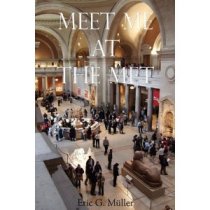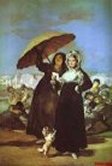Editor's Page
"Existentialism and Reincarnation" - by Frank Thomas Smith
Soren Kierkegaard (1813 - 1855) has been accused of being the father of existentialism. This is true, in a way, but K's existentialism (which he wouldn't have recognized as such) is a far cry from the atheistic existentialism which unfolded after him in the twentieth century. For he was an ardent Christian, one however who considered the [Lutheran] Church to be an enemy of Christianity, its interest being in the group, the docile flock � the more the better � rather than in the individual... The following passage, from 1 August 1835, is perhaps his most oft-quoted aphorism and a key quote for existentialist studies: "What I really need is to get clear about what I must do, not what I must know, except insofar as knowledge must precede every act. What matters is to find a purpose, to see what it really is that God wills that I shall do; the crucial thing is to find a truth which is truth for me, to find the idea for which I am willing to live and die." Arch-individualism, certainly...
Read more
Fiction
"The Imposter Magi" by Frank Thomas Smith
A
boy from the village ran into our yard at lunchtime on the fifth of January and announced at the top of his lungs that the Three Kings were coming to the
schoolhouse that night at nine o�clock. That�s how news in Las
Chacras is announced � by word of mouth. I remembered that a neighbor had asked
for a donation to buy sweets and balloons a few days before. Making enquiries
on the main road, I found out that the Kings were scheduled to begin their
descent to the school from the almac�n
at nine o�clock, which meant that they would more likely begin at nine-thirty
and arrive at ten....Read more
"Los Reyes Impostores"
El mediodía
del 5 de enero un chico del pueblo entró corriendo a nuestro
patio y anunció a voz en cuello que los tres Reyes Magos
llegaban a la escuela esa noche a las nueve. Así es como se
transmiten las noticias en Las Charcas –de boca en boca.
Recordé entonces que, unos días antes, un vecino me
había pedido una contribución para comprar golosinas y
globos. Preguntando en el camino principal, averigüé que
a las nueve los Reyes tenían programado iniciar su descenso
desde el almacén hacia la escuela, lo que significaba que más
probablemente comenzarían a las nueve y media y llegarían
a las diez..... Leer m�s
Current Events
""How to Schedule a War - The Incredible Shrinking Withdrawal Date" by Tom Engelhardt
Going, going,
gone! You can almost hear the announcer’s voice throbbing
with excitement, only we’re not talking about home runs here,
but about the disappearing date on which, for the United States and
its military, the Afghan War will officially end.
Practically speaking, the
answer to when it will be over is: just this side of never. If
you take the word of our Afghan War commander, the secretary of
defense, and top officials of the Obama administration and NATO,
we’re not leaving any
time soon...Read more
Education
"Why Waldorf Works" by Dr. Regalena Melrose
Why
Waldorf works has more to do with how the brain develops and
functions optimally than Rudolf
Steiner ever could have known. Sure the educator and founder of
Waldorf Education theorized
convincingly about how children learn best, but until MRIs and other
sophisticated measures
of the brain were developed, we had no way to prove or disprove any
of Steiner’s theories,
not with the kind of precision and accuracy we can now. An
overwhelming body of evidence
from the last 20 years of neuroscientific inquiry supports Steiner’s
theories, including some of the most fundamental foci of Waldorf
Education... Read more
Science
"The Tao of Colour" by Doug Marsh
It’s
all cut and dried – literally; science teaches us that light
can be split into component colours. Such a lifeless and desiccated
concept of nature leaves colours as nothing more than meaningless
“objective” wavelengths that impinge upon our eyes. The
human soul and spirit don’t factor in at all.
Holistic
science, on the other hand, takes an alternative view of colours that
fully embraces life and the dynamics of nature, consistent with the
ancient principles of Lao Tzu in the Tao Te
Ching. The mysterious Tao
truly manifests in colour phenomena...Read more
"The Unbearable Wholeness of Beings" by Steve Talbott
If you try to describe the living processes of the cell in a rather more
living language than is typically found in the literature of molecular
biology — a language reflecting the artfulness and grace, the
well-coordinated rhythms, and the striking choreography of phenomena such
as gene expression signaling cascades, and mitotic cell division — you will almost certainly hear
mutterings about your flirtation with "spooky, mysterious, nonphysical
forces". You should expect to hear yourself labeled a "mystic" or —
there is no viler epithet within biology today — a "vitalist". The
previous article in this
series reminded one reader of "some misty Shroud of Turin playing the pan
flute and dancing with the fauns on the meadow". However grotesque and divorced from serious thought this latter response
was, it does distantly reflect a certain sensitivity among biologists
— a sensitivity that the nonscientist readily picks up and
caricatures. And because this sensitivity is so damaging to the prospects
for any profound advance in biological understanding, it deserves to be
taken seriously... Read more
Anthroposophy
""Buddhism and Christianity" by Rudolf Steiner
 <><> 
|
That
Buddhism and the teaching of Buddha should frequently be discussed
today, is a fact of special interest in the study of human evolution;
for an understanding of the essential nature of Buddhism — or
rather the longing for such an understanding — has only made
itself felt comparatively recently in the spiritual life of the West...Read more
""Evolution and Music" by Keith Francis
The
following essay relates the history of music in the Western European
tradition to the evolution of consciousness as described by Rudolf
Steiner and makes no claim to be more than a sketch of certain
aspects.
Music
history as taught in my younger days (the 1940’s) concerned
itself largely with composers from Germany, Austria, France, Italy
and, sparingly and somewhat grudgingly, England. England got in
because Henry Purcell decided to incarnate there and Hӓndel
changed his name to Handel....
Read more
"The History and Actuality of Imperialism" - Lecture 2 by Rudolf Steiner
I
have spoken to you about the historical origin of what today may be
called imperialism, and you will have already noticed from what I
said yesterday that it is essential to see how contemporary
occurrences, which were once real factors in social life, are now
merely leftovers from older times as far as reality is concerned. In
olden times institutions and customs had their real meaning. To a
certain extent they were realities. Realty has ended though. After
passing through the stage of symbols, it has finally become a
platitude. In general we live in the age of platitudes. It is necessary, however,
to realize that platitudes need a certain soil from which to grow,
and on the other hand they are a preparation for something which is
yet to come in human evolution.... Read more
A Refutation of Allegations of Racism against Rudolf Steiner by Richard House
It
is commonplace in developed Western culture for the slightest whiff
of 'racism' to be unconditionally condemned – an understandable
balance-restoring tendency, perhaps, when viewed in the context of
the Western world's own disreputable history in these matters.
However, an equally interesting and quite new cultural phenomenon, at
least in Britain, is the increasing challenge being mounted to what
some see as an overbearingly stifling `political correctness' on
questions of race.
I maintain that Rudolf Steiner's uniquely
panoramic contributions on these questions can shed a great deal of
light on to these commonly fraught debates – not least because,
in Steiner's view of `the universal human being', we are presented
with a quite new way of thinking about these questions that takes us
well beyond the uncritical – and singularly non-illuminating –
dichotomous thinking that swings simplistically between `racist' and
`anti-racist' belief systems. In what follows, the comparatively recent charge of `racism' that was levelled at Rudolf Steiner in the 1990s is used as a vehicle for bringing some much-needed illumination to what is, in mainstream culture, an issue that typically generates far more heat than light...Read more
Karmic Relations, Volume 1, Lecture 7 by Rudolf Steiner
In
the last lecture I spoke of how the forces of karma take shape,
and today I want to lay the foundations for acquiring an
understanding of karma through studying examples of individual
destinies. Such destinies can only be illustrations, but if we
take our start from particular examples we shall begin to
perceive how karma works in human life. It works, of course, in
as many different ways as there are human beings on the earth,
for the configuration of karma is entirely individual. And so
whenever we turn our attention to a particular case, it must be
regarded merely as an example...Read more
Poetry
"Collegium Musicum" by Frank Thomas Smith
Taking
my son to the Collegium Musicum
Is
good for his musical future, no doubt;
for
me it has advantages, too.
The
hour and forty minutes spent
waiting
at the outdoor cafe
give
me a chance to think and watch...Read more
Philosophy
"The Myth of Er" by Plato (from "The Republic
Socrates:
Well, I said I
will tell you a tale; not one of the tales which Odysseus tells to
the hero Alcinous, yet this too is a tale of a hero, Er the son of
Armenius, a Pamphylian by birth. He was slain in battle, and ten days
afterwards, when the bodies of the dead were taken up already in a
state of corruption, his body was found unaffected by decay, and
carried away home to be buried. And on the twelfth day, as he was
lying on the funeral pile, he returned to life and told them what he
had seen in the other world...Read more
Book Reviews
"Meet Me at the Met" by Eric G. M�ller
Judging
a book by its cover is often a mistake. At first glance I would have
mistaken this book for a guide to the Metropolitan Museum of Art in
New York City, whereas it's really a guide to the joys and travails
of a naïve (euphonism for schmuck) guy who uses the Met as
cultural food for his soul when he is happy as well as when he is
down and out. So yes, it's a novel, whose anti-hero is actually named
Clarence – perfect name for a schmuck, but a lovable one. In
another sense, though, it's also a fictional guide to the Met... Read more
Letters to the Editor
I
laughed when I read Black Widow, so predictable, yet made me laugh out loud
early in the morning. When my teens asked what was so funny I responded that I
was reading light erotica from an anthroposophist. Thanks....
Thanks
for another great issue of SCR. Unlike Andrew I enjoyed the Black Widow. I've
always been certain that if I ever went looking for adventures I'd encounter
someone like that, only in my version it would be cameras and blackmail....
Read more
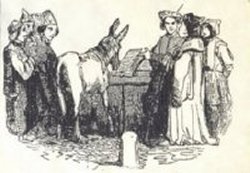
Click on the donkey to browse in the
SCR E-book Library
You can find us under the
Southern Cross constellation in the Traslasierra Valley, Province of
C�rdoba, Argentina. Visitors always welcome. Just follow the sign that
reads: La Cruz del Sur.
Frank Thomas Smith, Editor
JoAnn Schwarz, Associate Editor
Contact us
Authors'
Guidelines
Archives
so we can advise when the next issue is ready.
|
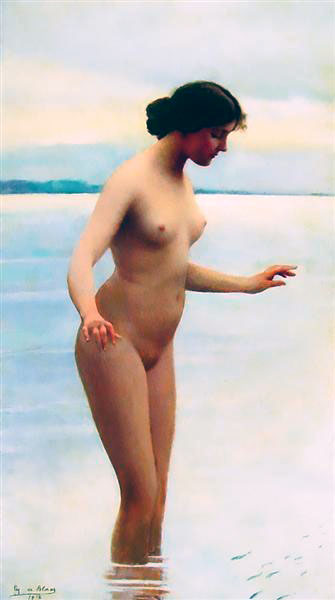

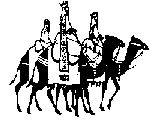



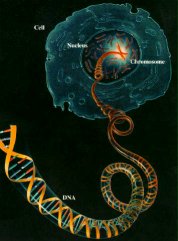
 <><>
<><>




